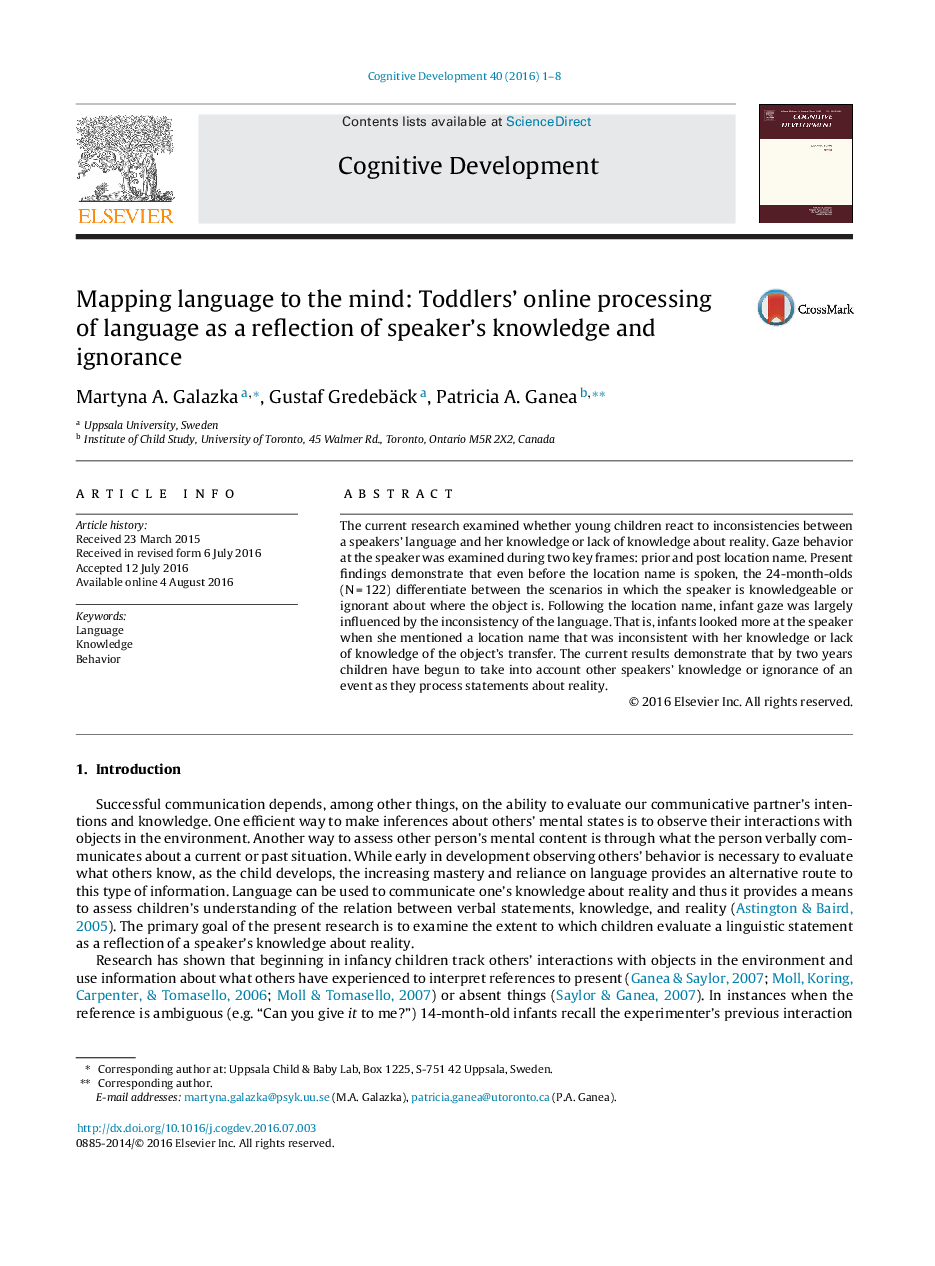| Article ID | Journal | Published Year | Pages | File Type |
|---|---|---|---|---|
| 916423 | Cognitive Development | 2016 | 8 Pages |
•24-month-olds observed a VoE location change task in which the agent made statements about her knowledge.•Examined gaze at the speaker during pre- and post-location name.•Findings show that prior to location name, infants differentiate between knowledgeable and ignorant speaker.•After the location name, they look longer at the speaker when the location name is inconsistent with her knowledge or ignorance.•Results speak for children’s sensitivity to the inconsistencies between language and mental content of the speaker.
The current research examined whether young children react to inconsistencies between a speakers’ language and her knowledge or lack of knowledge about reality. Gaze behavior at the speaker was examined during two key frames: prior and post location name. Present findings demonstrate that even before the location name is spoken, the 24-month-olds (N = 122) differentiate between the scenarios in which the speaker is knowledgeable or ignorant about where the object is. Following the location name, infant gaze was largely influenced by the inconsistency of the language. That is, infants looked more at the speaker when she mentioned a location name that was inconsistent with her knowledge or lack of knowledge of the object’s transfer. The current results demonstrate that by two years children have begun to take into account other speakers’ knowledge or ignorance of an event as they process statements about reality.
